Adapt to new norms to meet the challenges of the COVID-19 outbreak
Adapt to new norms to meet the challenges of the coronavirus
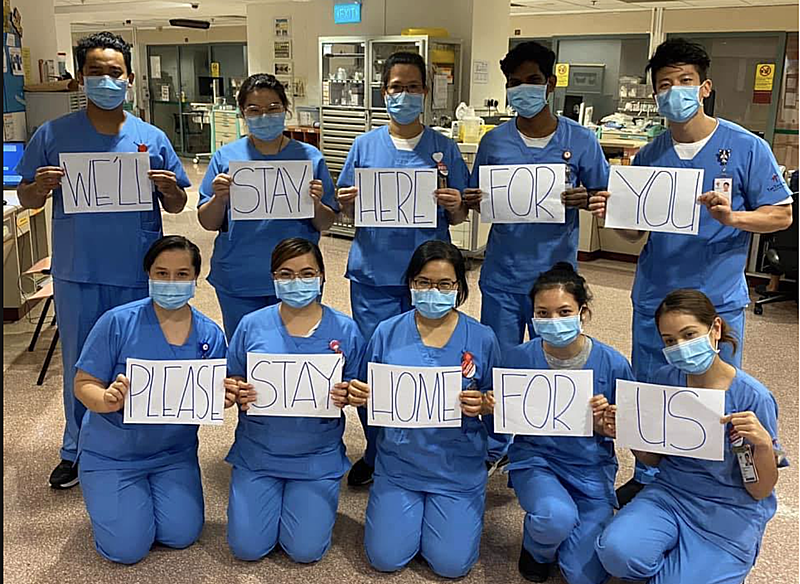
Photo credit: Eriyana Subadi’s Facebook
The COVID-19 pandemic has now emerged as the world's biggest threat to humanity. It has left a huge impact on health, economy and has affected the daily lives, cultural practices and religious activities of millions of people including Muslims. In facing this calamity, Muslims need to accept that change and adaptations to new norms in their lives amid COVID-19 are inevitable.
MUIS has taken steps to temporarily close all the local mosques and suspending all their activities including Friday prayers. In its announcement on 24th March 2020, MUIS said that all mosques in Singapore will remain closed until the situation improves and it is thus safe for mosques to be reopened. Read Suspension of Friday Prayers and Closure of Mosques Due to COVID-19: Here's What That Means.
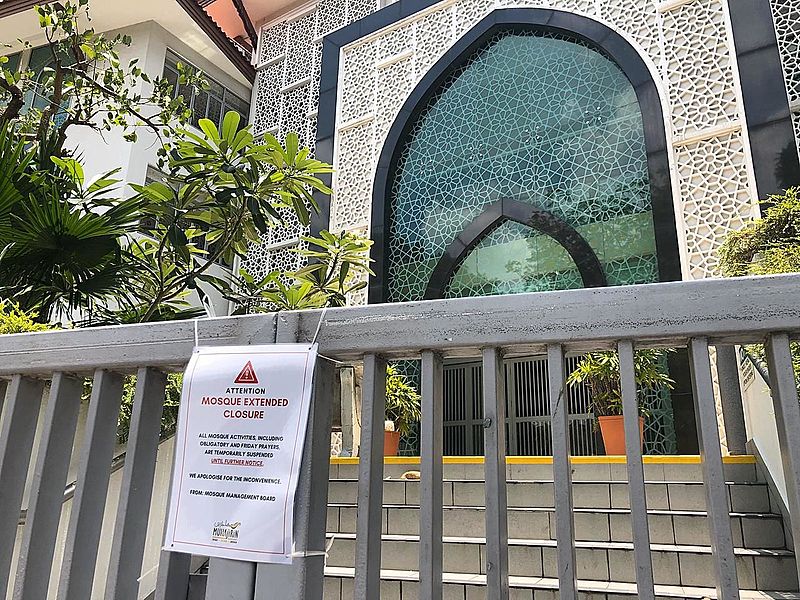
This is in line with the recommendation of the MUIS Fatwa Committee that such measures are sanctioned by religion to avoid harm and danger.
While the decision to take these precautions is not desirable, it is necessary as the saying goes "prevention is better than cure". In the face of such a crisis, our accurate and timely response is critical. It determines our success.
CHANGES AND ADAPTATIONS
The most crucial response in facing a threat of this nature is to embrace change and gracefully adjust to our habits, routines and way of life. Firstly, we must acknowledge that our lives can no longer be normal.
However, it must continue. Secondly, the community has to adopt positive ways of thinking that are rational, courageous and deeply committed to adapting to new norms.
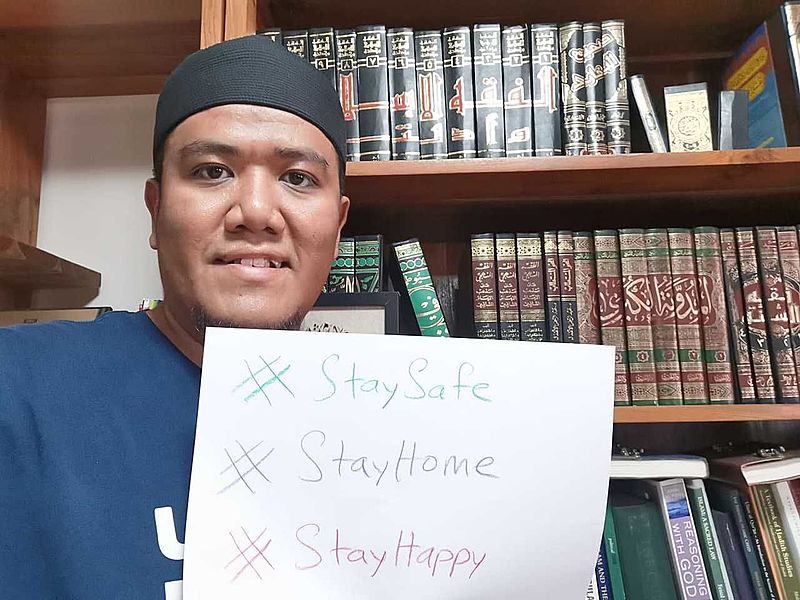
Photo credit: Ustaz Irwan Hadi's Instagram
Each and every individual must be empowered to believe that they have an indispensable role in curbing the spread of the COVID-19 virus. It will only take one careless, recalcitrant individual to collapse the safety nets placed in the system. In addition, cooperation and supporting each other are our fortress and strength against this invisible enemy. It can change our situation.
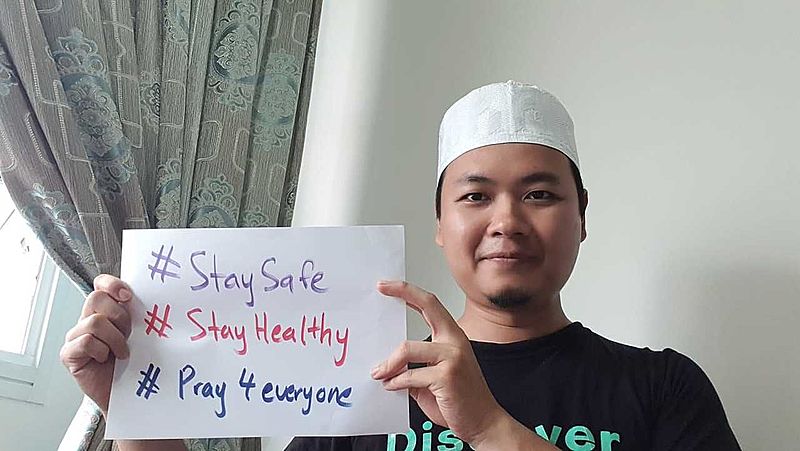
Photo credit: Ustaz Fadhlullah Daud's Instagram
As Muslims, we must take the lead in making changes. There are already guidelines within the Islamic tradition on the proper ways of maintaining hygiene and managing widespread infections (plagues) that we must revive.

In addition, we must be willing to forego some of our traditions and habits like handshakes and hugging while embracing new norms with an open mind.
This change must come from ourselves. What's more, making that change is our religious responsibility. In this regard, Almighty Allah reminds us in the Qur'an:
إِنَّ اللَّهَ لا يُغَيِّرُ ما بِقَومٍ حَتّىٰ يُغَيِّروا ما بِأَنفُسِهِم
"Indeed, Allah will not change the condition of a people until they change what is in themselves”
(Ar-Ra'ad, 13:11)
THE NEW NORMS
In an effort to curb the spread of the COVID-19 virus, Singapore has adopted the “prevention is better than cure” approach and implemented many precautionary measures. These measures deserve the full cooperation of all Singaporeans.
Since the beginning of the outbreak, the government has urged Singaporeans to raise the level of cleanliness, avoid physical contact like handshakes and to practice social distancing. These are some examples of the new norms in our society today.
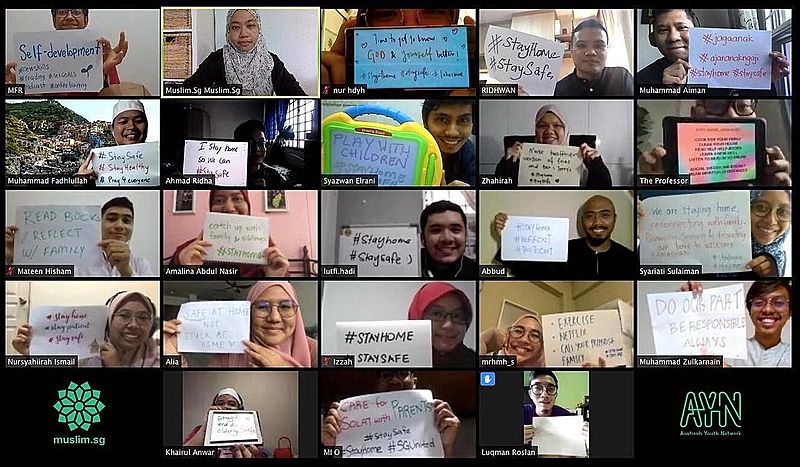
Notably, the practice of handshaking has become a common and natural habit for most people. It is also a tradition and religious practice. Leaving this practice is a difficult task. However, as this practice of handshaking will increase the risk and spread of the virus transmission, it should now be avoided.
The Muslim community needs to understand that all these changes and adjustments do not in any way violate Islamic principles. In the fatwa issued by the MUIS Fatwa Committee on mosque closure and suspension of Friday prayers, several legal maxims in Islamic law such as “emergencies permit the unlawful” and “the harm must be eliminated “have been used to produce the fatwa. These principles support one of the key objectives of the Sharia (Maqasid Shari'a) which is the preservation of life.
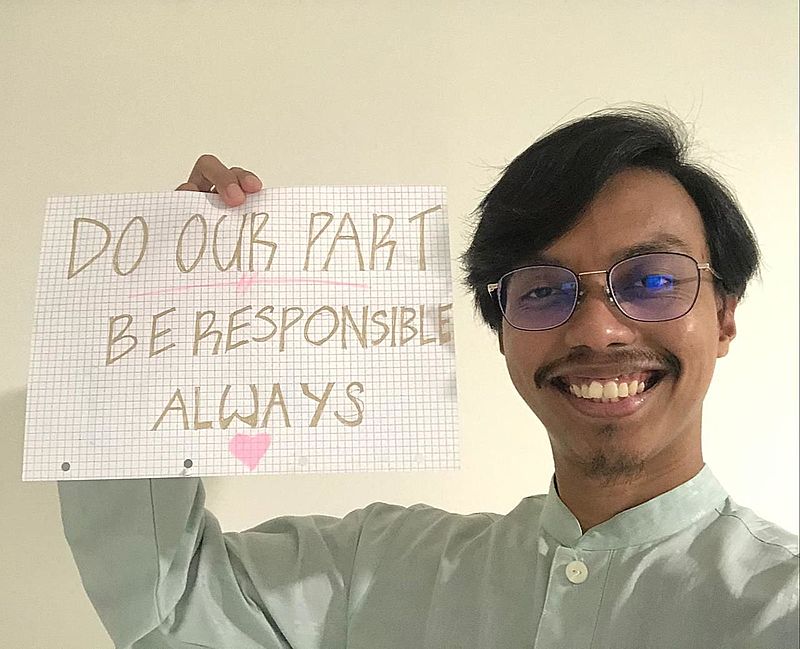
Photo credit: Ustaz Zulkarnain's Instagram
COVID-19 is a highly contagious virus that can easily spread from human to human. It can be life-threatening. Avoiding the practice of handshaking as well as adhering to the norm of social distancing is a way to stem the spread of this virus.
These practices have emerged to become the new norms in our daily lives today. Adaptation to these norms is necessary to sever the transmission chain of the virus in human beings.
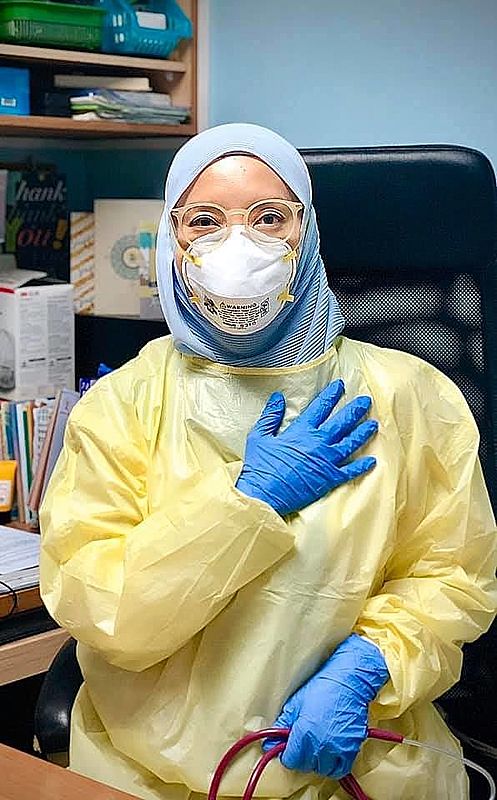
Photo credit: Dr Elly Sabrina's Facebook
Another example of a new norm is to increase the level of personal and public hygiene. While this is nothing new, it is very important. According to many health professionals and doctors, high levels of hygiene are the main line of defense in preventing the spread of COVID-19.
The practice of washing our hands frequently with soap or using a hand sanitizer in the absence of water should not be neglected as we deal with the COVID-19 crisis.

Whether we realise it or not, our actions will inevitably impact others. In the face of this crisis, selfishness should be avoided. Our actions can be harmful to others if we are irresponsible and careless. Government directives and all the precautionary measures that have been in place to curb the spread of the virus should be obeyed and taken seriously.
DO NOT CONFUSE RELIGIOUS CONCEPTS
"Fear of the virus or fear God?" This question was raised by some Muslims who expressed their dissatisfaction over the mosque closure. Such sentiments were also expressed by several followers of the Tabligh movement who were supposed to congregate at a meeting in Sulawesi which was ordered to be postponed.
In fact, such a question is wrong and should not be asked. Our Mufti Dr Nazirudin Mohd Nasir responded by saying that we fear God by being responsible human beings and not causing harm to others. On the other hand, the Honourable Mufti said that we do not fear God by being reckless and by ignoring safety precautions.
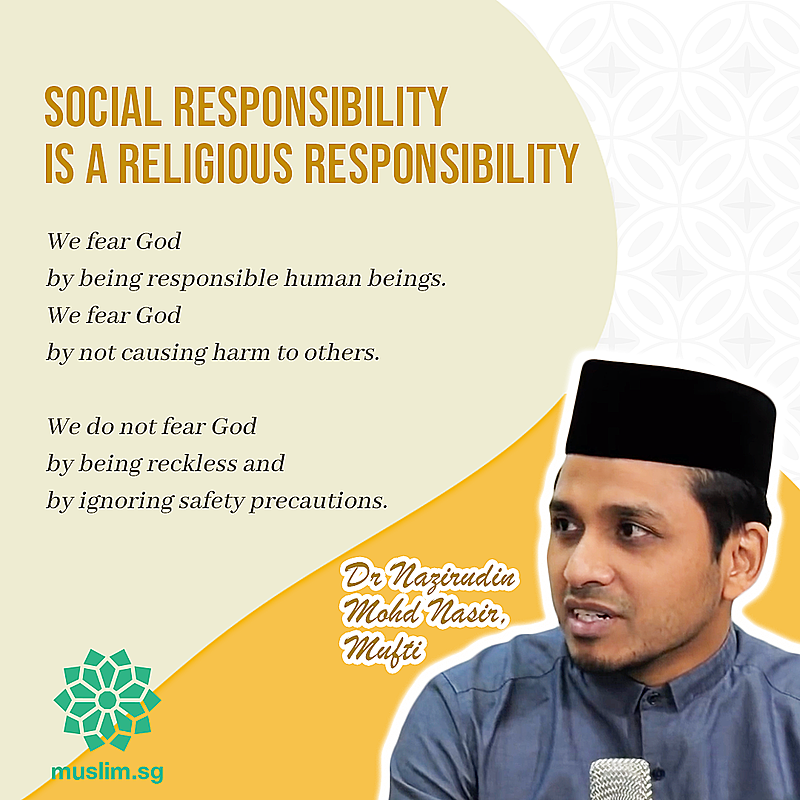
These Muslims fail to understand the religion and are confusing and misleading others with their misunderstood religious concepts. Their actions and expressions are largely based on emotion, dissatisfaction and superficial knowledge. Among the religious concepts they fail to understand correctly is the twin concepts of effort and tawakkal (total reliance on God). They claim that we do not need to take the preventive measures and instead call on God alone.
They insisted that the mosques need not be closed because it will only bring God's wrath. What they failed to understand is that having trust with God (tawakkal) is incumbent upon mankind only after they have to put efforts as ordered by Allah. The nature of tawakkal is conditional upon and must be preceded by effort.
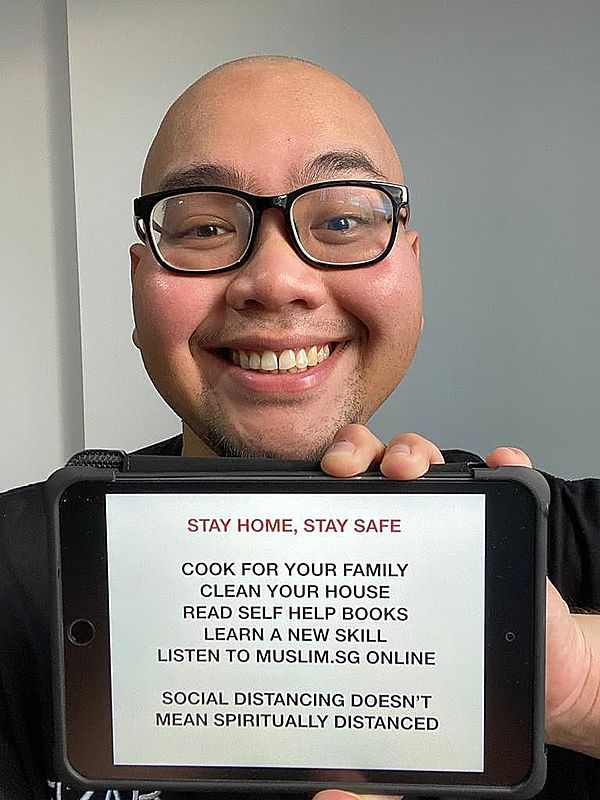
Photo credit: Ustaz Fizar Zainal’s Instagram
Not attending any congregation and closing the mosques during this crisis is part of our efforts to prevent transmission. Ignoring the true teachings of the religion, these irresponsible people have plunged themselves into harm and danger which is prohibited in Islam. Allah s.w.t. says in the Qur'an:
وَلا تُلقوا بِأَيديكُم إِلَى التَّهلُكَةِ ۛ وَأَحسِنوا إِنَّ اللَّهَ يُحِبُّ المُحسِنينَ
"And do not cast yourself down to destruction, and do good, for Allah loves those who do good."
(Surah Al-Baqarah, 2:195).
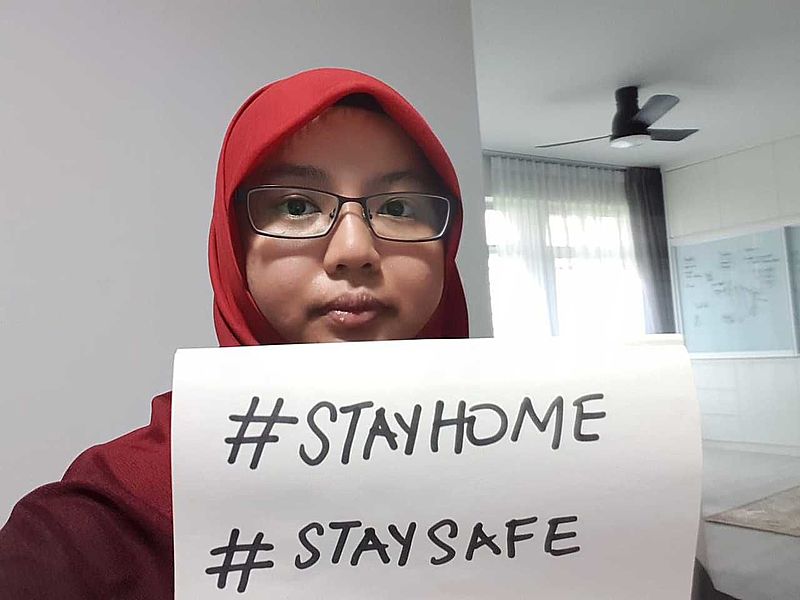
Photo credit: Ustazah Izzah Khamsani’s Instagram
Conclusion
The COVID-19 crisis is expected to last for the coming months. As the crisis continues, our way of thinking, actions and responses will determine if we will be successful in going through this trial and challenging period.
As a saying goes, “It's not what happens to you, but how you react to it that matters.” This is something for us to ponder upon and reflect during these difficult times. Embracing change and adjusting to new norms in going through this crisis is vital and should not be taken lightly.
In summary, let us stay away from negative emotions and sentiments. Let us continue making changes and adjustments for our own good and benefit. With such awareness coupled with a deep trust in Allah, we will be able to go through this crisis together.
For more resources on how to cope with COVID-19, click here.

